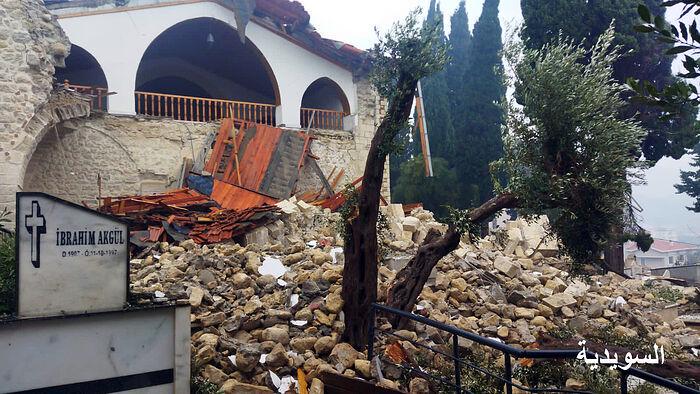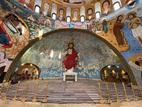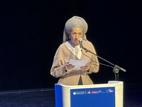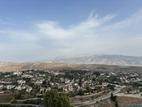On February 6, local time, two 7.8-magnitude earthquakes hit Türkiye, and the tremors were felt in Asia, Europe, and Africa. According to Aljazeera on Thursday, nearly 42,000 persons died in the Türkiye-Syria earthquakes. Turkish authorities said 36,187 people have been killed in the country. The Syrian government and the United Nations stated more than 5,800 people have died in Syria. The number of dead and injured is expected to rise for some time to come.
The Christian Times, an online Christian newspaper in China, recently interviewed Rev. Apollos Zhang (pseudonym), a millennial Chinese missionary who has served in Türkiye for two years. Although his city, Istanbul, was unaffected by the earthquake, it was a great shock to him and the people around him.
He shared the disaster and rescue situation, Türkiye's geographical, political, and religious environment, his personal thinking and perception, and the pain and joy of cross-cultural missions.
The following is what he told from his point of view.
In fact, the number of victims is estimated at between 60,000 and 200,000, as many people were crushed under the building and have not been excavated. Rescue teams from Europe, America, and China, would arrive there soon.
Some local churches were also damaged. Many churches I know are involved in fundraising to help the people affected by the disaster and donating clothes. Because the ruins of the Church of Antioch, which is very important to the Christian community, are located there.
The vast majority of people in Türkiye are Muslims, most of whom are moderate Sunni Islam who have little influence on Christians. It is a country of laws, and the police will come to protect churches if some extremists threaten them.
As a missionary, mourning the loss of life and property caused by the earthquake, I think this is also an opportunity for Christians to spread the gospel to these helpless persons.
In terms of Türkiye's overall political and religious situation, I think this earthquake will also prevent Türkiye from becoming more Islamic, because the current president, who has been in power for 20 years, is leading the country to be an Islamic state. But this time the earthquake exposed many problems for the government, such as shoddy construction practices and the disappeared earthquake taxes levied since the last major earthquake in 1999. With a presidential election in June 2023, there will be a possibility of a presidential transition, resulting in a better social and religious environment.
Türkiye is a bridge between Europe and Asia. For example, Istanbul, partly in Europe and partly in Asia, is one of the few cities lying on two continents. Having a good business environment that is market-oriented and law-based, the country attracts many Muslims and other people. With the same belief, Muslim people prefer to do business there, as it is a bridge to go to Europe and America. In addition, during the Syrian war, this country received four million Syrian refugees, many of whom were also trying to reach Europe from Türkiye.
It is a very important place for global Christianity. The first ten Ecumenical Councils that laid the foundation of the Apostles' Creed were all held in present-day Türkiye. Istanbul was once the capital of the eastern Roman Empire under Emperor Constantine the Great, who named the city “Constantinople” after his name. And the Ecumenical Patriarch Bartholomew I’s residence is in Istanbul.
Knowing nothing about Turkish, I first learned the local language. With some people who can speak Chinese and Turkish helping us with the translation of Bible courses, I strive to establish local people as church leaders.
In the process of nurturing the local people, I find the locals are not as strict with punctuality and faithful to agreements as Europeans, Americans, and Chinese. They treat the appointments with others more casually. They said, "If Allah wants it, so be it." This means that everything is up to the God they believe in.
The challenges missionaries face are more complex and diverse. We get some support in life by doing domestic missionary work. Coming overseas, we have to spend some time earning money, for overseas missionaries need to make a living by themselves. We also try by every means to attend morning services and regular prayer meetings with other Chinese-speaking missionaries.
I believe God loves this land and pray that Turks can recover from the earthquake's devastation and that God can comfort and heal their broken hearts.
- Translated by Abigail Wu












